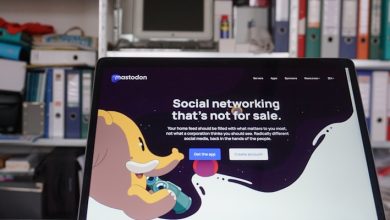The Role of Decentralized Applications in the Gig Economy

- Understanding Decentralized Applications
- The Rise of the Gig Economy
- Challenges and Opportunities for Gig Workers
- How Decentralized Applications are Disrupting Traditional Work Models
- The Benefits of Using Decentralized Applications in the Gig Economy
- The Future of Work: Decentralized Applications and the Gig Economy
Understanding Decentralized Applications
Decentralized applications, also known as DApps, are software applications that run on a decentralized network of computers rather than a single central server. This means that DApps are not controlled by any single entity, making them more transparent, secure, and resistant to censorship.
One of the key benefits of DApps is their ability to provide a trustless environment for users to interact with each other. This means that users can transact with each other directly, without the need for a middleman or intermediary. By removing the need for trust in a central authority, DApps can help reduce costs and increase efficiency in the gig economy.
In the context of the gig economy, DApps can play a crucial role in connecting freelancers with clients in a decentralized manner. By using smart contracts, DApps can automate the process of matching freelancers with jobs, setting terms of the agreement, and facilitating payments upon completion of the work. This can help streamline the hiring process and ensure that both parties are satisfied with the outcome.
Overall, understanding decentralized applications is essential for anyone looking to participate in the gig economy. By leveraging the benefits of DApps, freelancers and clients can enjoy a more efficient, cost-effective, and secure way of conducting business. With the rise of blockchain technology, DApps are poised to revolutionize the way we work and interact in the digital age.
The Rise of the Gig Economy
The rise of the gig economy has been a significant trend in recent years, with more and more people turning to freelance work and short-term contracts instead of traditional full-time employment. This shift has been driven by a number of factors, including the desire for flexibility and autonomy, as well as the rise of technology that makes it easier to connect with clients and customers.
Decentralized applications have played a key role in this trend, providing a platform for freelancers to connect with potential clients without the need for intermediaries. These applications use blockchain technology to create a secure and transparent environment for transactions, allowing freelancers to work directly with clients and receive payment quickly and securely.
By cutting out the middleman, decentralized applications have made it easier for freelancers to find work and earn a living on their own terms. This has led to a boom in the gig economy, with more people than ever before choosing to work as independent contractors rather than traditional employees.
Challenges and Opportunities for Gig Workers
Gig workers face a unique set of challenges and opportunities in the fast-paced gig economy. One of the main challenges for gig workers is the lack of job security and benefits that traditional employees enjoy. Gig workers often have to deal with irregular income streams and the uncertainty of finding their next gig. On the other hand, gig work offers flexibility and autonomy that many workers find appealing. Gig workers have the freedom to choose when and where they work, allowing them to create a work schedule that fits their lifestyle.
How Decentralized Applications are Disrupting Traditional Work Models
Decentralized applications (DApps) are revolutionizing traditional work models by providing a new way for individuals to engage in the gig economy. These applications leverage blockchain technology to create a peer-to-peer network where users can interact directly without the need for intermediaries. This eliminates the barriers that often exist in traditional work models, such as high fees and limited access to opportunities.
One of the key ways that DApps are disrupting traditional work models is by allowing individuals to take on a variety of tasks without being tied to a single employer. This flexibility enables workers to choose projects that align with their skills and interests, leading to a more fulfilling work experience. Additionally, DApps often use smart contracts to automate payment processes, ensuring that workers are compensated fairly and promptly for their contributions.
Furthermore, DApps are enabling workers to collaborate with others from around the world, breaking down geographical barriers and creating a truly global workforce. This not only expands the pool of talent available for projects but also fosters a diverse and inclusive work environment. By empowering individuals to connect and collaborate in this way, DApps are reshaping the way we think about work and creating new opportunities for economic growth and innovation.
The Benefits of Using Decentralized Applications in the Gig Economy
Decentralized applications (dApps) offer numerous benefits for workers in the gig economy. One of the main advantages is increased transparency in transactions and contracts, as dApps operate on blockchain technology which ensures immutable and secure records of all interactions. This transparency helps to build trust between employers and freelancers, reducing the likelihood of disputes and payment issues.
Moreover, dApps enable direct peer-to-peer transactions without the need for intermediaries, cutting down on fees and delays in payment processing. This not only benefits gig workers by allowing them to keep more of their earnings, but also streamlines the overall process for both parties involved.
Another key benefit of using dApps in the gig economy is the potential for increased autonomy and control over one’s work. Freelancers can choose projects that align with their skills and interests, negotiate terms directly with clients, and manage their workload more efficiently. This level of independence can lead to higher job satisfaction and overall well-being.
The Future of Work: Decentralized Applications and the Gig Economy
The future of work is rapidly evolving with the rise of decentralized applications in the gig economy. These applications, also known as dApps, are transforming the way people work by providing a platform for individuals to connect directly with clients without the need for intermediaries. This shift towards decentralized work offers unprecedented flexibility and autonomy for workers, allowing them to take on gigs that align with their skills and schedule.
Decentralized applications leverage blockchain technology to create a secure and transparent environment for transactions between freelancers and clients. By cutting out the middleman, dApps reduce fees and increase efficiency in the gig economy. This not only benefits workers by allowing them to keep more of their earnings but also provides clients with access to a wider pool of talent from around the world.
As the gig economy continues to expand, decentralized applications are poised to play a crucial role in shaping the future of work. Companies are increasingly turning to dApps to streamline their hiring processes and tap into the global talent pool. This shift towards decentralized work is not only revolutionizing the way people work but also challenging traditional employment models.
In conclusion, decentralized applications are revolutionizing the gig economy by providing a more efficient and transparent platform for freelance work. As technology continues to advance, the role of dApps in the future of work is only expected to grow. By embracing decentralized applications, both freelancers and clients can benefit from a more flexible, cost-effective, and decentralized approach to work.



